
EASY ID
Tell male lucifers apart from other hummingbirds by a curved bill and purple neck feathers.
Q Why is the lucifer hummingbird named after the devil?
Mike Froio ROME, NEW YORK
Kenn and Kimberly: At first glance it seems shocking. You might wonder what this little bird did to deserve such a name. But the British scientist William Swainson probably wasn't thinking of the devil when he named this bird in 1827. The word lucifer has had various meanings. For example, in ancient Rome, it was the name given to the planet Venus when it appeared in the morning sky. That was appropriate, because lucifer is Latin for "light-bearer" or "light-bringer." Swainson probably chose the name after seeing how light reflected from the brilliant purple throat of the male lucifer hummingbird.
Q This plant was labeled as dogwood. What is it actually? vincent Drexler CANAL FULTON, OHIO
Melinda: The plant is a type of dogwood. But it's not the flowering dogwood (Cornus florida) you may have expected. Your shrub is most likely silky dogwood (Cornus amomum), a suckering shrub that grows 6 to 10 feet tall, with small white flowers and purplish stems. Take a closer look at the growth habit, stems and leaves to confirm your plant's identity. Compare these features to detailed descriptions on botanic garden or educational websites.
Q Is fresh watermelon juice a safe snack for hummingbirds? Sonja Batchelor PANAMA CITY, FLORIDA
This story is from the June/July 2022 edition of Birds & Blooms.
Start your 7-day Magzter GOLD free trial to access thousands of curated premium stories, and 9,000+ magazines and newspapers.
Already a subscriber ? Sign In
This story is from the June/July 2022 edition of Birds & Blooms.
Start your 7-day Magzter GOLD free trial to access thousands of curated premium stories, and 9,000+ magazines and newspapers.
Already a subscriber? Sign In
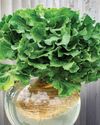
Basics of Hydroponics
Use these top tips and plant picks to have a successful soil-free garden
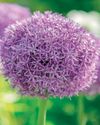
Rooted in Resilience
These hardy perennials will thrive in most zones
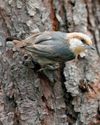
Social and Supportive
Brown-headed nuthatches take a helpful approach to raising their young
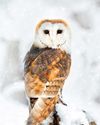
All About Owl Pellets
And why you should give a hoot about them
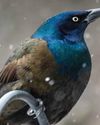
Ask the Experts
Advice from our pros about houseplants, bird feeding and more

BRING THE OUTDOORS IN
Making a terrarium is about as close as you can get to a Zen DIY project. Once you have gathered the proper materials and squared away your plant selections, it's as simple as layering it all together and watching your mini ecosystem thrive. Here, I'll walk you through my foolproof process and cover all the required elements for good filtration, healthy soil, strong root growth and resistance against fungus and disease.

GROW THIS. NOT THAT
Six easy-to-grow houseplants—and six that may not be the right choice for you

Winter MAGIC
Forecasts may be frigid, but grab your binoculars because birding opportunities are still incredible
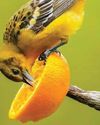
Sense or Nonsense? - Why some birds can taste and smell - but others can't
Does a porcelain berry taste like a blueberry to a gray catbird? Does a block of lard smell like frying bacon to a northern flicker? The short answer is no. While some avian species do have a well-adapted sense of taste or smell, they can't distinguish between flavors and odors the way humans can. They're not picking up every ingredient in the suet you put out, says José Ramírez-Garofalo, an ornithology researcher at Rutgers University in New Jersey and the director of Freshkills Biological Station in Staten Island, New York.

Maple Mania - Amazing facts about this fall foliage mainstay
Amazing facts about this fall foliage mainstay